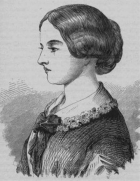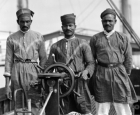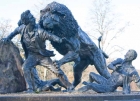Cross Curricular
History as a subject lends itself to developing meaningful links to a cross-curricular topic. Advice on achieving a robust and rigorous approach will be available in this section.
Sort by:
Date (Newest first) | Title A-Z
Show:
All |
Articles |
Podcasts |
Multipage Articles
-

Integration and cross-curricularity: History, Humanities And Social Studies
ArticleClick to view -

Learning what a place does and what we do for it
ArticleClick to view -

Means and Ends: History, Drama and Education for Life
ArticleClick to view -

Museums, schools and creativity: How learning can be enhanced
ArticleClick to view -

Music and history combine at Key Stage 2
ArticleClick to view -

Music in the History Curriculum
ArticleClick to view -

Music in the history curriculum
ArticleClick to view -

OFSTED, primary history and creativity
ArticleClick to view -

Planning with literacy
ArticleClick to view -

Political literacy: citizenship through the English national curriculum's the Romans in Britain study unit
ArticleClick to view -

Pride in place: What does historical geographical and social understanding look like?
ArticleClick to view -

Remembering Agincourt: Bilingual Enquiry
Multipage ArticleClick to view -

Teaching diversity through drama
ArticleClick to view -

Teaching history and geography together in a meaningful way
ArticleClick to view -

The History around us: Local history
ArticleClick to view -

Thematic or topic based whole school curriculum planning
ArticleClick to view -

Unpicking the learning potential in creative approaches to studying World War II
ArticleClick to view -

Using cemeteries as a local history resource
ArticleClick to view -

Using classic fiction to support the study of childhood in Victorian times
ArticleClick to view -

Using diaries to stimulate children's understanding of the past
ArticleClick to view

